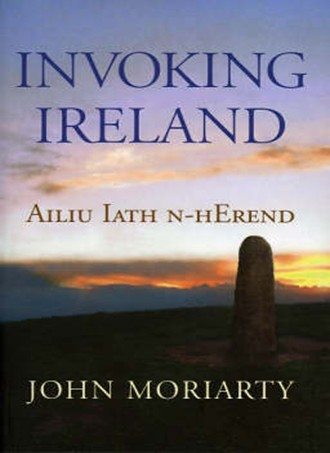
Invoking Ireland
By: John Moriarty
Publication Date: September 2005
€16.00
Invoking Ireland by John Moriarty
In the nineteenth century, here in Ireland, we started to walk away decisively from a native language that was a way of seeing and knowing things. In the twentieth century we started to walk away from a religion that in many of its ideas and practices was a folk religion. In this century we are walking away from local accents, from the big open vowels upon which so many of our poems depend for their full auditory effect. Overall, in line with revolutionary ambitions elsewhere in the world, we have moved from rites that related us to time and eternity to rights within a body politic. Could it be that we have moved too far, too fast?
The Chinese say that the sage is to be found not walking ahead of humanity, finding a way for it, but behind it, picking up the inestimable treasures it leaves behind it in its flight into an ever-receding future. While he doesn’t claim to be a sage, here too is where we find Moriarty, walking hundreds, even thousands, of years behind us, picking up things.
As its centenary approaches, Invoking Ireland offers an alternative to the 1916 Easter Rising Proclamation. Here Moriarty proposes not a Republic but anEnflaith, reinstituting a Birdreign in which all things live ecumenically with all things, uniting man with nature, magic and the divine. Standing shamanically and mystically with the heroes of political thinkers, among them Plato, St Augustine and Rousseau.
‘Asking Irish people to reconnect with their deepest springs, Moriarty reads the Tales in the light of a modern depth-psychology of which most Celtic scholars are still quite innocent. His commentaries are like the unleashing of lost ancestral forces, flashing forth again in our moment of current danger. These visionary texts are a reminder of the life-force that beats within us all.’ – Declan Kiberd, author of Inventing Ireland
‘[Invoking Ireland] is transporting.’ – Customer review
ABOUT THE AUTHOR
JOHN MORIARTY (1938-2007) was born in North Kerry and educated at Listowel and University College Dublin. He taught English Literature at the University of Manitoba in Canada for six years, before returning to Ireland in 1971. He is the author of Dreamtime (1994, revised 1999), the trilogy Turtle Was Gone a Long Time: Crossing the Kedron (1996), Horsehead Nebula Neighing (1997) and Anaconda Canoe (1998), Nostos, an autobiography (2001) and Night Journey to Buddh Gaia (2006).
| ISBN | 9781843510796 |
|---|
| Weight | 0.5 kg |
|---|---|
| Dimensions | 215 × 136 mm |
| Publication Date | September 2005 |
| Format | Paperback, 240pp |

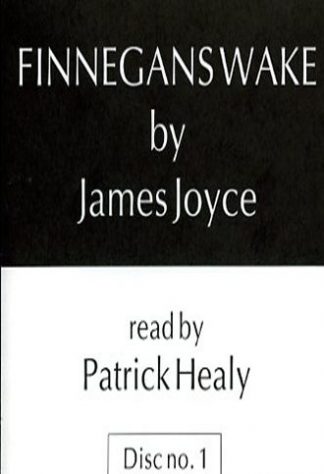
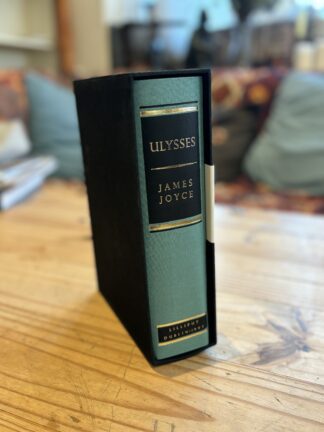
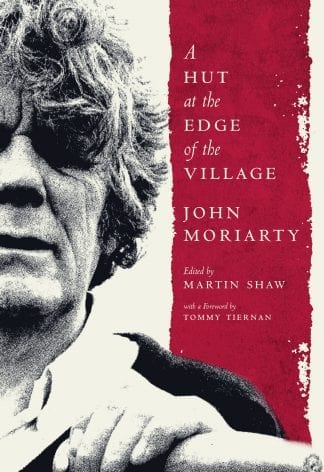
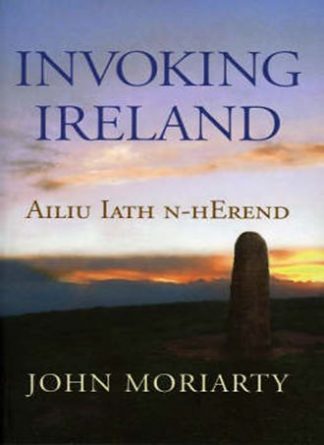
Lilliput Press –
“It is transporting. I can’t read it at bedtime, because it keeps me awake just mulling it over and over.” TIMM
Lilliput Press –
“Moriarty considers the “Transcendent Immanent,” which “is bountifully immanent in the the herb that heals us, the cancer that kills us.” (197) As this book is one of three written in the last year or so of his life, stricken down by three forms of the latter force of nature, I paused to reflect on the power that engages this combination of fictional narrative and mystical musings upon Ireland’s mythic past and forlorn present. Reading his earlier autobiography, “Nostos” (also reviewed by me; to which he completed a sequel immediately prior to his death last June, “What the Curlew Said”), I often became disenchanted with his repetitive prose. I tended to drift off for long stretches under his incantatory, recursive, and steadily chiding rhythms. While I recognized that I may have been encountering a dazzling intellect and a sensitive soul, I recoiled from the attitude. Warming never much to Yeats, Lawrence, or Blake, I sensed Moriarty sought to reclaim their poetic mantle, while tinting such an ornate cloak with a embellished Celtic motif. The whole pattern appeared too intricate for easy appreciation, too heavy for ordinary wear. It appeared to cobble together aboriginal, Navajo, Norse, Egyptian, Christian, alchemical, and Irish contexts into what Kevin Kiely critiqued in Moriarty’s career as repeating hubristic Causabon’s Key to All Mythologies, famously one of (for me) the best parts of “Middlemarch”!
I had a soft spot for poor Causabon, and my generosity towards Moriarty despite his shamanic mannerisms continues. Like Blake and Yeats, he’s gravitating towards the pre-Christian, and even the pre-Celtic, notably, as he seeks answers for what he urges us to accept as an “Én-flaith,” a Bird-Reign of ecumenical oneness with the natural world, one of the fatal hawk and not only the gentle dove. In a striking passage he cites Patrick’s double-edged question to Bran: “How perfect is an otter’s face when he has a brown trout between his teeth? What does the trout think?” (144) Moriarty, perhaps driven by his own mortality’s pace, in this book takes on this puzzle. He never answers it, and how can he or any of us truly? He takes a couple of hundred pages, nevertheless, meditating over it by recalling Irish stories, from both before and after Patrick, and struggles towards an acceptance of a realm that would call Irish people beyond a mere Republic towards a reign of deeds done in harmony with the greater culture that urges all life towards breakthroughs into the eternal, beyond the mind and certainly the body that we fill with poison and the earth that we foolishly pollute in our warp-spasm. He doesn’t use this phrase from CúChullain as I recall, to be fair, but the death-rattle of our own end-time, Moriarty would agree, can only be countered by a healing and a reverence towards Danu, the primordial presence that emanates only when her back is turned away from us.
I was surprised that he did not connect this to G-d’s showing to Moses from behind, but as the author admits, this collection of tales is a set of tarot cards, a shuffling of many themes he has already drawn upon before. So, perhaps in his other books over the past fifteen years, he forged such a link. The inconclusive, speculative style of his thought on the page perhaps lacks a drama that, as I have only read, he possessed in his vocal presence. Parts of this are in Latin or Old Irish, and while some is translated, some eludes those of us less educated than the Causabons or George Eliots of our degenerate century. Such, on the other hand, is the discipline that rewards the adept.
Alan Titley, one of the pre-eminent critics in Irish, in “The Irish Book Review” noted the accuracy of Moriarty’s translations, and my limited ability can verify this. Moriarty does, as Titley praises, enter into the spirit of the texts he gathers, and he resurrects many stories and tells them with vigorous compassion and hard-won wisdom. Rilke, D.H. Lawrence, Ted Hughes, Mircea Eliade, Marguerite Porete, William Law, Thomas Traherne, and Indian (in both senses of the adjective) sources speckle, as veins in quartz, his own integration of other-worldly reflections from around the world and across the centuries. Moriarty’s range remains impressive. I am not sure how to build the Bird-Reign after ending this retelling of Irish sources, but I am impressed with his erudition put towards the cause of not self-promotion, as with so many scholars, but the betterment of us all, the weak and the struggling and not only the tenured and the acclaimed. His own decision, decades ago, to leave academia behind for his own vision-quest informs and enriches his work. While critics may scoff at his magpie eclecticism and his gnomic tone, I admit he earns my respect as well as my occasional bafflement. Luckily, a glossary explains most of his coinages, borrowings, and untranslated (in the text) phrases from Sanskrit or Irish.
Out of such materials has Moriarty left us to roam the ruins and to attempt to rebuild. His publisher, The Lilliput Press, will be issuing a pricy (250 euro!) spoken-word CD set to fund a hedge-school project he had dreamed of in his native Kerry. In print, and as I have observed about “Nostos,” Moriarty’s reflections can, taken at random, appear almost channelled or half-crazed. I suppose this is the prophetic tone. He seeks the oracular, and although I perhaps wished in this slim volume more direct suggestions for how to heal an Irish psyche and transform yearnings for territorial dominance into spiritual ecumenism, Moriarty– as with earlier sages and gurus– leaves the hard work of change with those of us who must follow the message with the mission.” JOHN L MURPHY